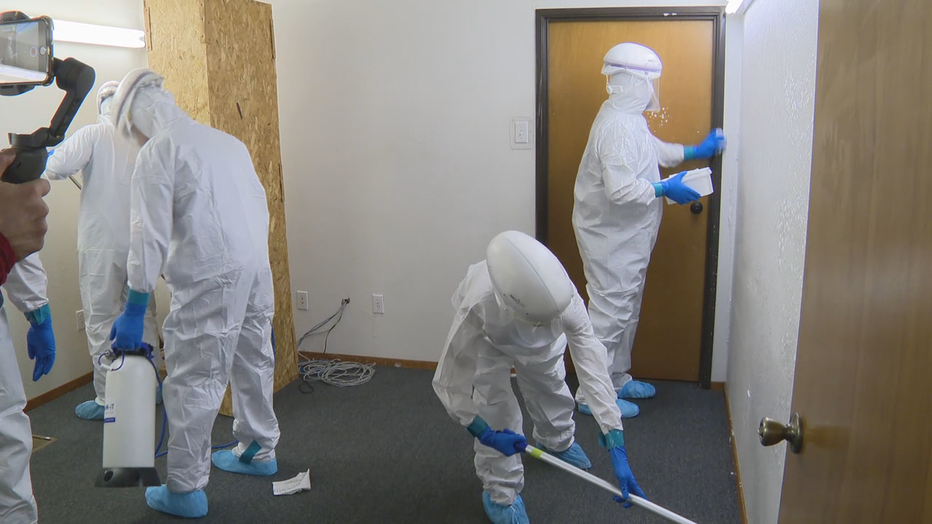North Texas cleaning crews trained for biohazard response to coronavirus
North Texas cleaning crews trained for biohazard response to coronavirus
As the number of coronavirus cases continues to grow in China and other countries, health officials and infectious disease experts are preparing.
DUNCANVILLE, Texas - There are no coronavirus cases in Texas, but cleaning crews are being trained for specialized biohazard response if that changes.
Health experts said Wednesday the risk in North Texas is very low, but it’s still important to prepare and educate ahead of time just in case.
“There’s a potential pandemic coming our way and we want to be prepared for that as much as possible,” said Patty Olinger, Exec. Director, Global Biorisk Advisory Council.
As the number of coronavirus cases continues to grow in China and other countries, health officials and infectious disease experts are preparing.
“The potential of having a problem is low, but if you watch what’s going on in the world you realize the numbers keep going up,” Olinger said.
She’s part of the team at Emory University that treated the first Ebola patients in the U.S. in 2014, including a nurse from Dallas. She says there were lessons learned from that outbreak.
“What we found was we really weren’t as prepared as the United States thought they were. The whole concept of if someone with a very exotic disease like Ebola or this new novel coronavirus is walking in the door, how are we going to respond from a public health standpoint to protect our physicians, our nursing staff?” Olinger said.

Instructors from the council on Wednesday trained biohazard cleaning crews on wearing proper protective gear and using new technology to disinfect areas after coronavirus exposure.
“It’s a new virus and it’s a new virus no one in the world has been exposed to and it’s moved very rapidly from Wuhan, China throughout China around the world,” said Dr. Gavin MacGregor-Skinner, Director of Training, Global Biorisk Advisory Council.
Infectious disease experts say the virus is spread through coughing and sneezing and protecting yourself against it is similar to protecting yourself against the flu.
“Protect your eyes, your nose, your mouth, wash your hands for 20 seconds, use the appropriate disinfectants,” said MacGregor-Skinner.
Though the number of cases in the U.S. is low, experts are still looking ahead to any possible situation.
“We hope we’re all correct in that this doesn’t become a real public health issue here in the United States, but it’s one of those things we need to be prepared ahead of time,” Olinger said.

